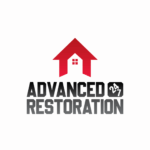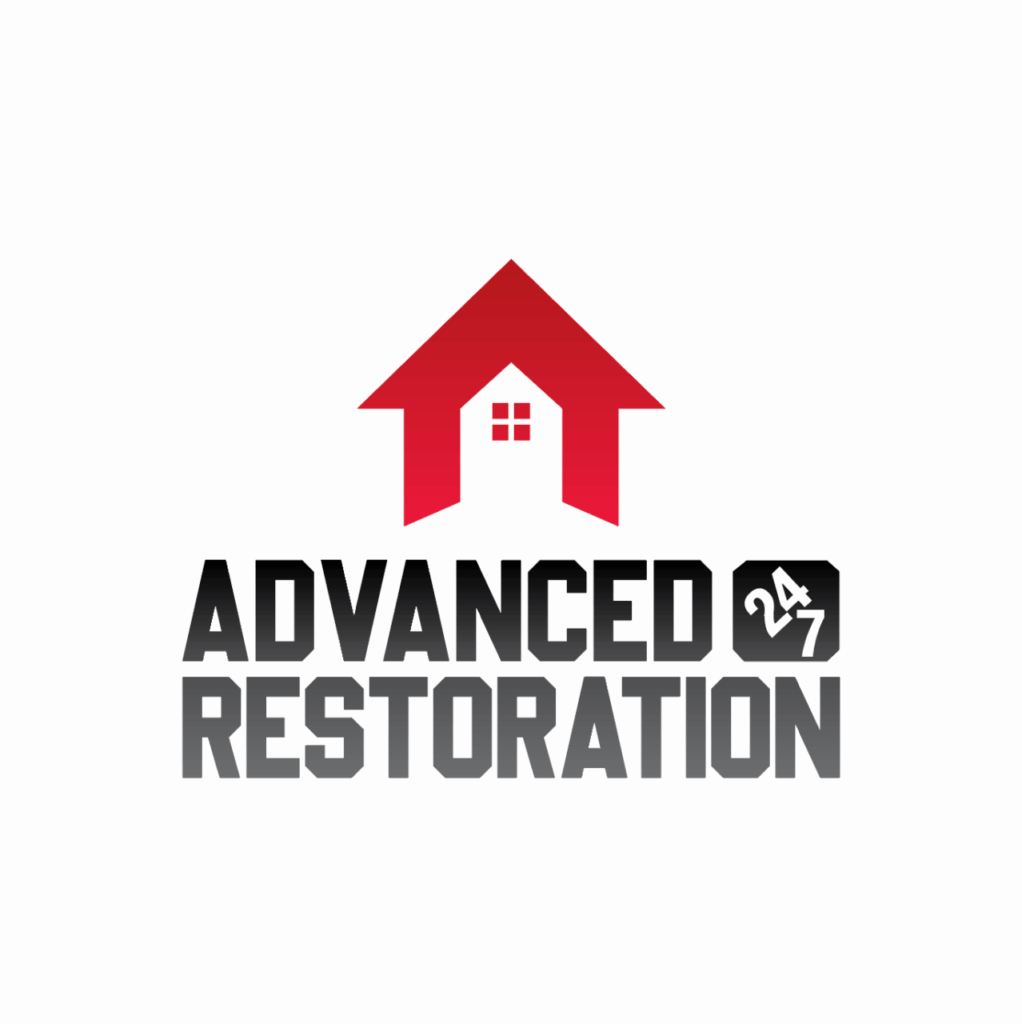Have you ever questioned why sewage cleanup exposure can have such a significant impact on your health?
The answer lies in the various hazards present in sewage that can pose serious risks to your well-being. From bacterial infections and viral illnesses to respiratory complications and gastrointestinal disorders, the consequences of sewage exposure can be far-reaching.
But that’s not all – there are also skin irritations, eye and ear infections, and potential long-term health consequences to consider.
This discussion will explore the reasons behind these health effects and highlight the importance of taking proper precautions when dealing with sewage cleanup.
Bacterial Infections and Diseases
Bacterial infections and diseases pose significant health risks during sewage cleanup, requiring immediate attention and proper precautions. When you come into contact with sewage, your immune system response is crucial in fighting off the harmful bacteria that may be present. However, in some cases, these bacteria can be resistant to antibiotics, making them even more dangerous.
Your immune system is your body’s defense mechanism against bacteria and other pathogens. When exposed to sewage, it kicks into high gear, producing white blood cells and antibodies to eliminate the harmful bacteria. This immune system response is essential in preventing infection and further complications.
Unfortunately, the bacteria found in sewage can sometimes develop antibiotic resistance. This means that the usual antibiotics that are effective in treating bacterial infections may not work against these specific strains. Antibiotic resistance occurs when bacteria mutate and become resistant to the drugs that are designed to kill them. This poses a significant challenge when it comes to treating infections acquired during sewage cleanup.
To protect yourself during sewage cleanup, it’s essential to take proper precautions. Wearing protective clothing, such as gloves and masks, can help reduce the risk of exposure to harmful bacteria. Additionally, practicing good hygiene, such as washing your hands thoroughly with soap and water after coming into contact with sewage, is crucial.
Viral Infections and Illnesses
During sewage cleanup, it’s important to be aware of the risks associated with viral infections and illnesses, as they present additional health concerns that require proper precautions. Viral infections can be highly contagious and spread rapidly, posing a significant threat to individuals and communities. To better understand the public health impact of viral infections during sewage cleanup, consider the following:
- Prevention strategies:
- Proper hygiene practices: Frequent handwashing with soap and water is crucial in preventing the spread of viruses. It’s also important to avoid touching your face, especially your eyes, nose, and mouth, as these are entry points for viruses.
- Personal protective equipment (PPE): Wearing appropriate PPE, such as gloves, masks, and goggles, can provide a physical barrier against viral particles. This is especially important when dealing with sewage, as it may contain various pathogens.
- Vaccination: Vaccines play a vital role in preventing viral infections. Ensuring you’re up to date with your vaccinations can significantly reduce your risk of contracting and spreading viruses.
- Public health impact:
- Outbreaks: Viral infections can lead to outbreaks, causing widespread illness and putting a strain on healthcare systems. Proper sewage cleanup procedures are essential in preventing the transmission of viruses and minimizing the risk of outbreaks.
- Long-term health effects: Some viral infections can have long-term health consequences, such as organ damage or chronic conditions. Taking appropriate precautions during sewage cleanup can help protect both immediate and long-term health.
Respiratory Health Complications
To protect your respiratory health during sewage cleanup, it’s important to take necessary precautions and be mindful of potential complications.
Exposure to sewage can seriously affect your lungs, leading to lung damage and chronic coughing. When you come into contact with sewage, harmful pathogens, and toxic gases can be released into the air. Breathing in these contaminants can irritate your respiratory system and cause inflammation in your airways. This can lead to chronic coughing, making it difficult for you to breathe properly.
In addition to the immediate effects, long-term exposure to sewage can result in more serious respiratory health complications. The toxic substances present in sewage can cause irreversible damage to your lungs. This damage can range from mild irritation to severe conditions such as bronchitis or even lung cancer.
To protect yourself from these respiratory health complications, it’s crucial to wear proper protective gear, such as masks and gloves, when dealing with sewage cleanup. These items can help reduce your exposure to harmful pathogens and toxic gases. It’s also important to ensure proper ventilation during the cleanup process, as this can help minimize the concentration of airborne contaminants.
Furthermore, seeking medical attention is essential if you experience any respiratory symptoms after sewage cleanup. Early detection and treatment can prevent further damage to your lungs and help manage any chronic coughing or other respiratory issues that may arise.
Gastrointestinal Disorders
Protect your digestive health during sewage cleanup by taking necessary precautions and being aware of potential gastrointestinal disorders. Exposure to sewage and its contaminants can lead to various gastrointestinal disorders, causing discomfort and affecting your overall well-being. It’s important to understand the risks involved and take steps to protect yourself.
Here are some key points to keep in mind:
- Food Poisoning: During sewage cleanup, there’s a risk of coming into contact with harmful bacteria, viruses, and parasites that can contaminate food. It’s crucial to avoid consuming any food that may have been exposed to sewage water or its contaminants. Ensure proper food handling, storage, and cooking techniques to prevent food poisoning.
- Water Contamination: Sewage water can contain a wide range of pathogens, including bacteria, viruses, and parasites. Ingesting or coming into contact with contaminated water can lead to gastrointestinal issues such as diarrhea, vomiting, and stomach cramps. It’s important to avoid using or consuming any water that may have been contaminated by sewage.
By following these guidelines, you can minimize the risk of gastrointestinal disorders during sewage cleanup. Remember to wash your hands thoroughly with soap and clean water after handling sewage or potentially contaminated materials. Using personal protective equipment, such as gloves and masks, can also provide an additional layer of protection.
Taking these precautions will help safeguard your digestive health and prevent the onset of food poisoning or water contamination-related gastrointestinal disorders. Stay aware, stay safe, and prioritize your well-being during sewage cleanup.
Skin Irritations and Infections
Be mindful of potential skin irritations and infections that can arise from exposure to sewage and its contaminants. When contacting sewage, your skin may be exposed to harmful substances that can trigger allergic reactions and immune system responses. These reactions can manifest in the form of skin irritations and infections, causing discomfort and posing a risk to your overall health.
One common skin irritation that can occur after exposure to sewage is dermatitis. This condition is characterized by redness, itching, and inflammation of the skin. The contaminants present in sewage, such as bacteria and chemicals, can disrupt your skin’s natural balance, leading to this uncomfortable condition. Dermatitis can range from mild to severe, and in some cases, it may require medical intervention to alleviate symptoms and prevent further complications.
In addition to dermatitis, exposure to sewage can also increase the risk of skin infections. The bacteria and viruses in sewage can easily enter your body through cuts, scrapes, or other breaks in the skin. These pathogens can then cause infections, such as cellulitis or abscesses, which can be painful and may require medical treatment, including antibiotics or drainage.
To protect yourself from skin irritations and infections when dealing with sewage cleanup. Wearing protective clothing, such as gloves, boots, and waterproof suits, can minimize direct skin contact with sewage and reduce the risk of contamination. After exposure, thoroughly clean and disinfect your skin to remove potential pathogens.
Eye and Ear Infections
Exposure to sewage can lead to the development of eye and ear infections, posing a risk to your health. When sewage comes into contact with your eyes or enters your ears, it can introduce harmful bacteria and viruses that can cause infections. These infections can be painful and uncomfortable, affecting your daily life and overall well-being.
However, there are prevention methods and treatment options available to help you stay healthy and avoid these infections.
To prevent eye and ear infections caused by sewage exposure, consider the following:
- Eye protection: When working around sewage or in areas where sewage cleanup occurs, wear protective goggles to shield your eyes from potential contaminants.
- Proper hygiene: Wash your hands thoroughly with soap and water after any contact with sewage. Avoid touching your eyes or ears with dirty hands to minimize the risk of infection.
If you do develop an eye or ear infection due to sewage exposure, there are treatment options available:
- Antibiotics: Depending on the type and severity of the infection, your doctor may prescribe antibiotics to fight the bacteria or viruses causing the infection.
- Ear drops: For ear infections, your doctor may recommend ear drops to help relieve pain and reduce inflammation. These drops may contain antibiotics or other medications to treat the infection.
Long-Term Health Consequences
Developing eye and ear infections from sewage exposure can have long-term health consequences that may require ongoing treatment and management. However, it’s important to note that the impact of sewage cleanup exposure goes beyond just physical ailments.
The mental health effects and immune system impact can also have significant long-term consequences on your overall well-being.
When you’re exposed to sewage, it can lead to a range of mental health effects such as anxiety, depression, and post-traumatic stress disorder (PTSD). The distressing experience of dealing with sewage spills and the potential for contamination can take a toll on your mental health, affecting your ability to cope with everyday stressors and impacting your quality of life. It’s crucial to seek support from mental health professionals, who can provide the necessary guidance and therapy to help you manage these long-term effects.
In addition to mental health effects, sewage cleanup exposure can also have adverse effects on your immune system. Exposure to harmful pathogens in sewage can weaken your immune system, making you more susceptible to infections and diseases. This can result in frequent illnesses, reduced ability to fight off infections, and prolonged recovery periods. It’s essential to prioritize immune-boosting practices such as maintaining a healthy diet, exercising regularly, and getting enough sleep to support your immune system’s recovery and resilience.
To ensure your long-term health and well-being, it’s crucial to seek proper medical attention and ongoing treatment for any eye and ear infections resulting from sewage exposure. Addressing the mental health effects and boosting your immune system can also help mitigate the long-term consequences of sewage cleanup exposure.
Summary
So, the truth is that sewage cleanup exposure can have serious consequences for your health. Bacterial and viral infections, respiratory issues, gastrointestinal disorders, skin irritations, and eye and ear infections are just some of the risks.
But here’s the twist: there may also be long-term health consequences that we’re only beginning to understand.
So, next time you’re faced with a sewage cleanup, take extra precautions to protect yourself and your health. It’s not worth the risk.
Advanced 24/7 Restoration’s mission is to provide unparalleled care and support to our valued clients. Delivering the best solutions for your property restoration needs. Our vision is to be the top-rated damage restoration company in Denver, known for our exceptional services, professionalism, and dedication to customer satisfaction. Water damage, fire damage, flood damage, and more.
- This author does not have any more posts


